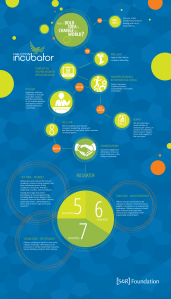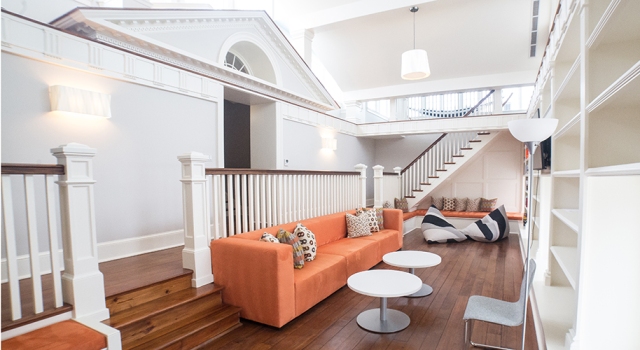As part of my job I work with innovators from across society and the economy. People working on solving problems big and small.
I’ve been fortunate to work with the Mason Honey Bee Initiative (HBI) for a few years (helping them complete a crowdfunding campaign in 2013) and six months ago the Center for Innovation and Entrepreneurship at the George Mason School of Business, partnered with the College of Science and took over the Mason Honey Bee Initiative.
This program has many elements — from pollination courses to work teaching women in latin american to become bee keepers in order to make a living to provide for their families.
It is an exciting time for our Center and for the HBI as evidenced by recent media coverage..
A story by Michael Gaynor from the Washingtonian outline’s HBI and German Perilla’s efforts to find queen bees that are more resistant to colony collapse syndrome. More:
The honeybee has been facing a crisis brought on by parasites and pesticides. From 2015 to 2016, 44 percent of the commercial bee population died—a dire statistic considering that more than two-thirds of food crops rely on bees for pollination.
To save the species, Perilla is on the hunt for “the perfect queen.” He’s mating bees from the most robust hives to create a genetic standout that can birth a hive resistant to pests and disease.
But the Honey Bee Initiative is about more than science. Perilla’s students have traveled to the Amazon to teach beekeeping to women entrepreneurs in poor areas. Others studying anthropology, education, public policy, and even art have done projects. This year, engineering students took part in a campus hackathon, building a custom “smart hive” to better monitor the bees.
Another media piece, from Northern Virginia Mag, that explains HBI’s work with Covanta to reestablish meadow space in Fairfax County, VA on the property of a landfill. From the article by Eliza Berkon;
There are 12 colonies of honeybees at the landfill traveling in a 2-mile radius around the Lorton site as they forage, Perilla says. Both Fairfax County and Covanta, the private company that transfers waste into ash at the landfill, are funding the project.
“This is the first time we are trying to convert a landfill into a productive ecosystem,” Perilla says. “The hope is to at least double the population, have productive apiaries and have a little more acceptance of the people regarding the perception that they have of a landfill.”





